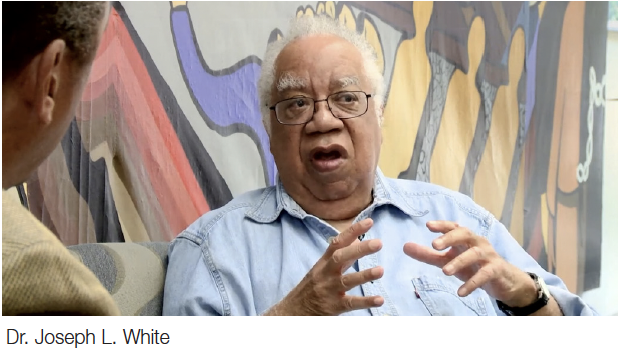
By Anders J. Hare
Historical adversity that has led to modern-day racism, oppression, trauma and other social issues has increased the need for mental health resources among people of color. Over 16 percent of Black or African American people living in the U.S. reported having a mental illness in the past year, according to the Substance Abuse and Mental Health Administration; this equates to over seven million people.
Black mental health advocates and experts in the U.S. have worked tirelessly for over 100 years to shed light on the great need for resources in underrepresented communities. Here are just a few of their stories.
Linda James Myers, PhD
Linda James Myers photo.jpg
A specialist in psychology, culture and intersections of race, gender and class, Dr. Linda James Myers developed the theory of Optimal Psychology, which suggests there’s an optimal worldview that emphasizes the interrelatedness of all living people and things. In 1988, Dr. Myers published her book, “Understanding an Afrocentric World View: Introduction to an Optimal Psychology,” in which she identifies the essential factors of racism and other social issues and how we can change them. Dr. Myers has received numerous honors for her work in psychology, including the Bethune/Woodson Award for Outstanding Contributions in the Development of Promotion of Black Studies from the National Council of Black Studies and the Building to Eternity Award from the Association for the Study of Classical African Civilization.
Inez Beverly Prosser, PhD
Dr. Inez Beverly Prosser became the first Black woman to earn her PhD in psychology. She’s considered to be “the mother of Black psychology.” Her dissertation, “The Non-Academic Development of Negro Children in Mixed and Segregated Schools,” revealed that Black students benefited more in segregated schools because they were more likely to receive affection, support and a balanced curriculum versus an integrated school where they more were likely to have problems adjusting academically, socially and in accepting their identity. Dr. Prosser was tragically killed in a car crash just a year after her dissertation was accepted. However, her work in childhood development among Black students helped influence the landmark 1954 Brown v. Board of Education case.
Francis Cecil Sumner, PhD
Dr. Francis Cecil Sumner, considered to be “the father of Black psychology,” was the first Black man to earn his PhD in psychology. Dr. Sumner was accepted into Clark University’s doctoral psychology program but was then drafted to serve in WWI. After returning home, he re-enrolled and his dissertation, “Psychoanalysis of Freud and Adler,” was accepted in 1920. While he struggled to receive funding from research agencies because of racism, many of the articles he wrote focused on understanding racial bias and supporting educational justice. Dr. Cecil is credited as one of the founders of the psychology department at Howard University, which he chaired from 1928 until his death in 1954.
Joseph L. White, PhD
Jospeh L. White photo 2.jpg
Often credited as “the father or godfather of Black psychology,” Dr. Joseph L. White became the first African American to earn a PhD in psychology from Michigan State University. His research emphasized the importance of the application of Black psychology as a separate entity than that of white psychology. In 1970, he published the groundbreaking work, “Toward a Black Psychology.” That article received acclaim as the first-ever strengths-based –– rather than deficit-based –– evaluation and description of Black behavior and culture. In the article, Dr. White argued that applying white psychology to Black people often unfairly created the illusion of Black inferiority, when ultimately it was a reflection of the culturally irrelevant psychological principles being applied. A pioneer in modern Black psychology, he helped found the Association of Black Psychologists as well as the Black Studies program at San Francisco State University in 1968. Dr. White received many awards during his career, including the Citation of Achievement in Psychology and Community Service from President Bill Clinton.
